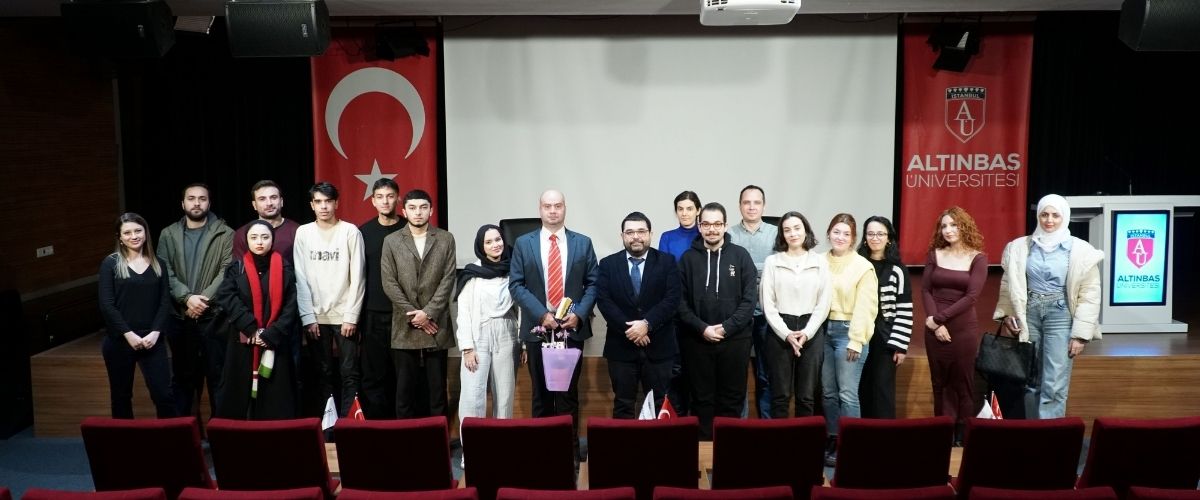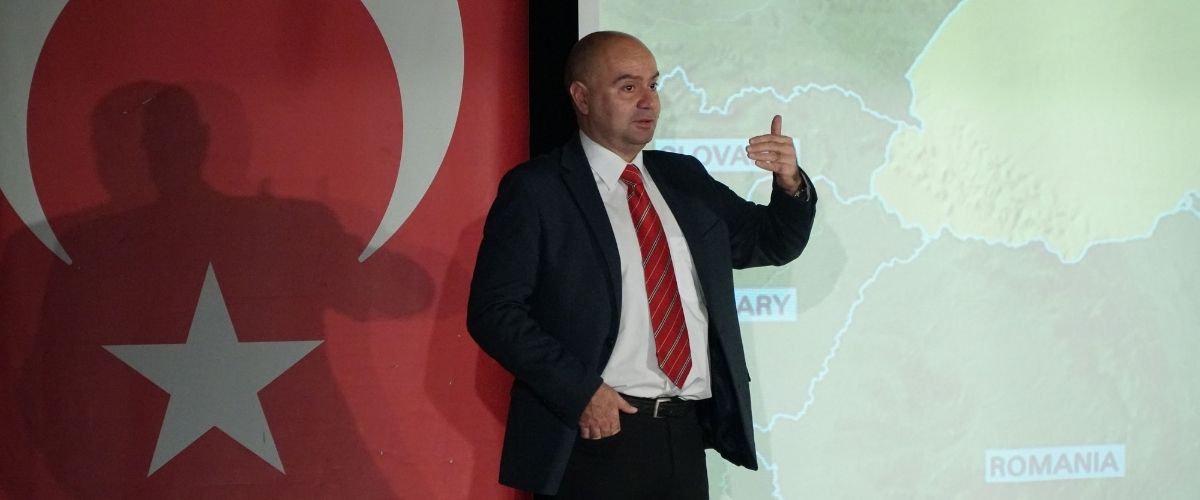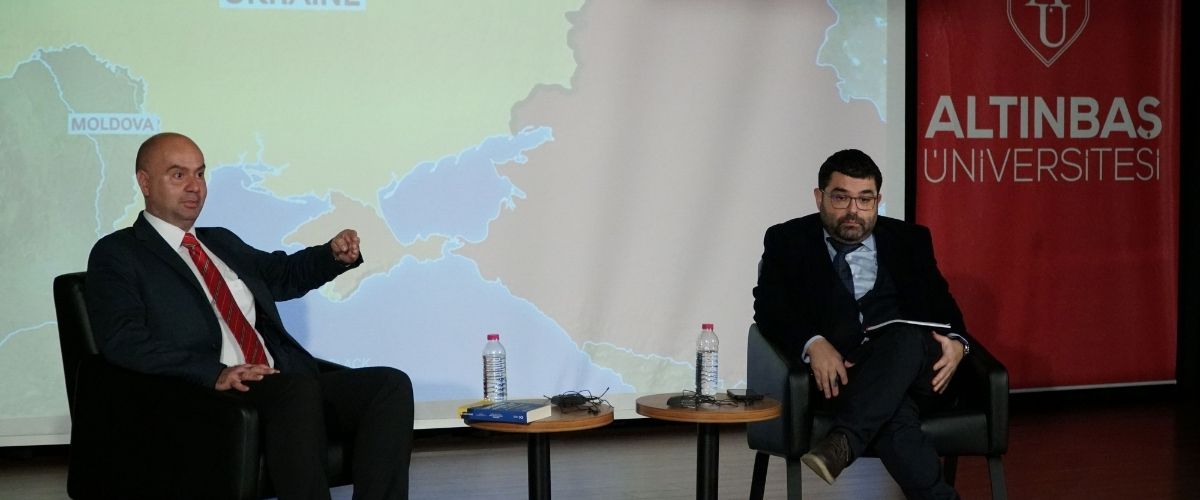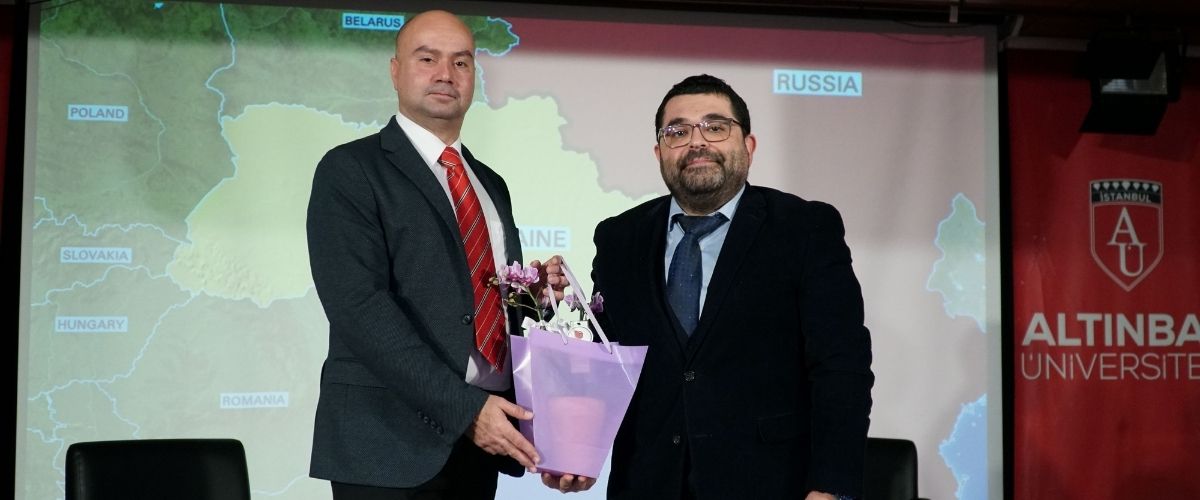Is a Peace Process Approaching in the Ukraine-Russia War?
Journalist and Author Deniz Berktay discussed the Ukraine - Russia war in a talk on “Trump and the Ukraine War” organized at Altınbaş University.
The course of the Ukraine-Russia War, which will be in its third year in February 2025, is a matter of curiosity. According to experts, it is possible to move towards a peace process in Ukraine after Trump takes office.
Journalist and author Deniz Berktay, who has lived in Ukraine for many years and closely followed the war, said that peace terms could be put on the table with Trump's inauguration on January 20, 2025, but before this process, the parties will try to strengthen their hands by increasing the conflicts. He pointed out that Ukraine is currently seeking a just peace and reconciliation rather than victory in the war.
Journalist and author Deniz Berktay discussed the complex structure of the Ukraine-Russia war in a talk on “Trump and the Ukraine War” organized at Altınbaş University. “Ukraine: The World's Political Fault Line”, Berktay stated that the war is both a struggle between Russia and Ukraine and should be considered as part of a wider conflict between Russia and the West. “The shape and intensity of European and US policies towards Ukraine are among the important factors that will determine the course of this process,” Berktay said.
Berktay pointed out that in the last period when there was hope for peace, there may be an intensification of the conflicts on the ground and an effort to strengthen the hands of the parties, and stated that Russia will put pressure on Ukraine by putting its military gains on the table during the peace talks.
“Ukraine's territorial integrity and independence must be defended”
Berktay stated that the first dimension of the war is the defense of Ukraine's territorial integrity and independence. He said that Türkiye continues to defend Ukraine's territorial integrity and independence and that a change in borders could have a negative impact on Türkiye. He emphasized that Türkiye's mediation role in the peace process remains important and that Ankara has a balanced approach to the Russia-Ukraine war. He pointed out that the second dimension of the war is the West's use of Ukraine as a tool in its strategy to contain Russia. He said that the efforts of the United States and Britain to increase their influence in the region also affected the dynamics of the war. “At the end of the war, Ukrainian public opinion may be shaped by nationalist sentiments and economic difficulties. Russia's loss of prestige in the international arena will remain one of the long-term effects of the war,” he predicted.
“They have strong historical and sociocultural ties “Berktay also touched upon the historical and cultural ties between Russians and Ukrainians. He said that both nations share the same origins, which complicates the dynamics of the war.
“Ukraine seeks ‘just peace’ rather than victory”
Berktay mentioned that former US President Donald Trump represents a group of people in favor of ending the war in Ukraine. He noted that Trump is known to have strained relations with Ukrainian leader Volodymyr Zelensky, despite his intention to initiate a peace process to end the war. He said that Ukraine was no longer looking for victory, but for a “just peace”.
“Crimea has strategic importance”
Berktay emphasized the strategic importance of Crimea for Russia, saying that it is a vital base for the control of the Black Sea. By annexing Crimea, Russia has guaranteed its dominance in the Black Sea, he said.
Russia's conditions for peace do not change
Deniz Berktay reminded that Russian President Vladimir Putin continues to demand that Ukraine should not join NATO and that foreign military bases should not be established in the country. He noted that Russia, which cut the connection with Ukraine through the Sea of Azov, annexed Donetsk, Luhansk, Zaporizhia and Kherson regions in September 2022. However, the Ukrainian recapture of Kharkov was a blow to Russia's prestige, he said.
“Russia lost prestige, Ukraine was left alone”
Lastly, Berktay touched on the international implications of the war, saying that the Western world sees the war in Ukraine as an opportunity to weaken Russia. He said that the West hoped that this war could spell the end of Russia, just as the Soviet Union collapsed after the invasion of Afghanistan. “But the war is not going according to the expectations of either the West or Russia. Developments like Russia's forced withdrawal from Syria and the revolt of the Wagner Group are signs that Putin's leadership is weakening. Russia's loss of prestige in the international arena will be one of the long-term effects of the war. However, Moscow is still quite determined to hold on to the annexed regions in Ukraine and Crimea.”
Berktay pointed out that it is not yet known how the war will affect Ukraine's national consciousness and said, “If the war does not turn out the way the Ukrainian government wants, serious questioning may begin among the people. In particular, the perception that Western countries leave Ukraine alone from time to time may lead to disappointment in the society. The fact that Western countries create high expectations for supporting Ukraine and then offer insufficient support strengthens this perception.”





